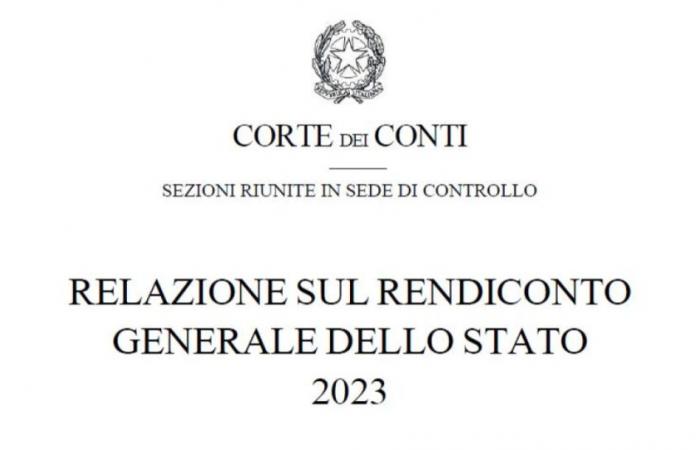Amounts to 5.4 billion euros the amount of the installments due in 2023, which are not paid, of the scrapping.
The data is part of the composite photograph provided by Report on the general state budget for the year 2023which was presented yesterday by the Court of Auditors.
The Revenue Agency’s activity led to the recovery of approximately 20 percent of the amounts due.
Compared to previous years, in 2023 the inspection documents.
Scrapping, 5.4 billion in overdue and unpaid installments: the Court of Auditors’ snapshot
The photography taken by it is complex and varied Court of Auditors in the “Report on the general state budget for the year 2023”presented yesterday.
The substantial document focuses on various aspects and provides the data relating to last year.
Regarding membership to the scrapping plans, which provide for a simplified definition of payments, the Court of Auditors underlines that:
“In particular, it is noted that the collection by means of roles delegated to the Revenue Agency-Collection has brought in revenues of 14.8 billion. This is an exceptionally high amount, derived both from ordinary collection and from the proceeds of the first two installments of the new facilitated definition (the so-called scrapping-quater).”
However, given the higher than normal revenue, instrument does not seem entirely effective for recovering the sums owed. In some cases, in fact, adhering to facilitated definitions represents a tool available to the taxpayer for “take time”.
The report highlights the following:
“However, it should be noted that 5.4 billion of the installments due in 2023 have not been paid and that probably a significant portion of the adhesions to the scrapping is aimed at delaying the forced collection.”
The growth in tax revenues related to inspections derives mainly from compliance letters addressed to the subjects called to the checkout.
Compared to last year and previous years, the number of checks by the Revenue Agency.
- Court of Auditors – Report presented on 27 June 2024
- Report on the general state budget 2023 (summary document).
Fight against tax evasion: recovery of 20 percent of the sums
From the Report of the Court of Auditors the poor effectiveness of the tools for recovering sums related to tax evasion emerges.
In addition to the possibility of avoiding controls, which are not widespread, those who do not pay taxes have the possibility of using tools that allow them to delay payment and in some cases pay with simplified folder definitions.
With respect to the amounts due, the recovery occurs for approximately 20 percent of the sums.
The Court of Auditors provides collection data following communications of irregularities, retracing the past years:
- in the 2018 tax period, the amounts recovered reached 3.1 billion euros;
- in 2019 the sum stood at 4.3 billion euros;
- in 2020 the amount was 1.4 billion euros.
The average is of the recovery following irregularity reports is just over a fifth of the total sums.
In this regard, the report explains the following:
“It is, therefore, a rather limited percentage of the overall amounts due, the causes of which should be better explored, but which could also be related to deep-rooted expectations of subsequent scrapping.”
An incentive not to pay the sums due could therefore be linked to the possibility that subsequent instruments allow for obtain subsequent benefits.
Added to this was a reduction in the number of checks by the Revenue Agency.
The ordinary assessments for 2023 amount to over 175 thousand and they are decreasing compared to the previous year, with a decrease of 14 thousand investigations which in percentage terms stands at 7.5.
Furthermore, the numbers are significantly lower than those before the pandemic: the checks in 2019 there were over 267 thousand.
In this regard, the Court of Auditors highlights the following:
“It is necessary to point out that a greater frequency of tax controls, especially for the types of activities at greater risk of tax evasion (and more numerous), could and should integrate the preventative use (first of all) of the huge amount of data available in information systems (including, as already reported, the descriptive data of electronic invoices issued and received, the amounts communicated electronically and the movements resulting from the Register of Financial Relationships and electronic payments), already largely provided for by law, but not yet fully implemented.”
We will have to wait to see if the recent hiring of over 4,000 Revenue Agency officials, in support of the reduction in staff, will have an effect on this aspect.






